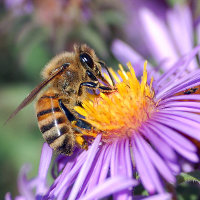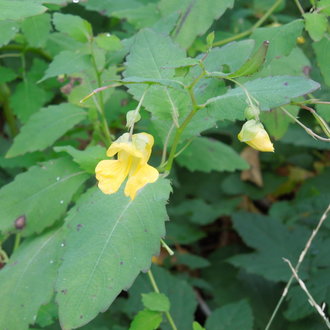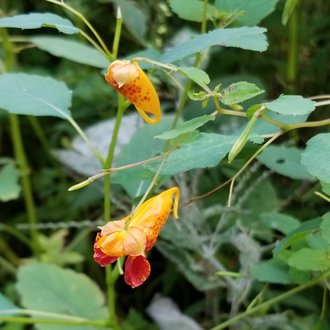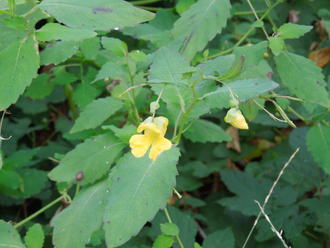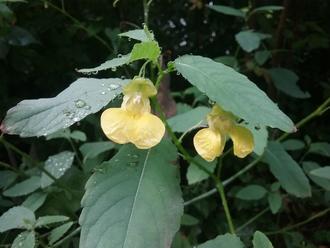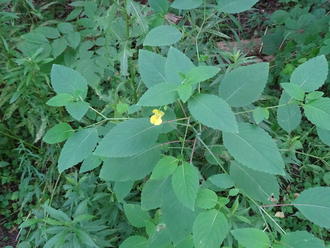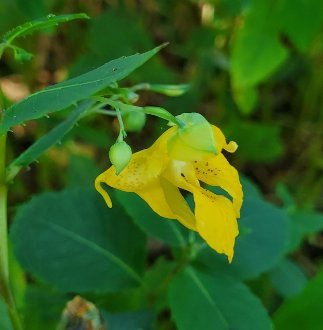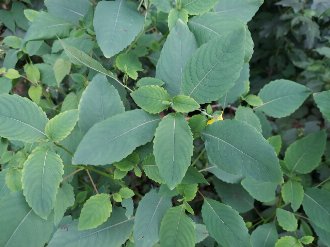Pale Touch-Me-Not (Impatiens pallida Nutt.)
↑Summary
A yellow-flowering annual native to eastern North America, preferring wet areas.
↑Range - Expand
| Legend | Color |
| Native | |
| Native or Not Present |
This tentative map is based on our own research. It may have limited data on Canada and/or Mexico, and there is some subjectivity in our assignment of plants as introduced vs. expanded. Read more in this blog post.
Although this plant occurs somewhere in each of these regions, it may only occur in a small part of some or all of them.
↑Similar Plants
↑Habitat
Found mostly moist openings in deciduous woodlands, including along margins of bodies of water, swamps, and wet thickets.
Found mostly in wet to moist conditions, but sometimes ranging into mesic to slightly dry conditions, especially on sites shaded from afternoon sun.
Relative to jewelweed (Impatiens capensis), this species is tolerant of slightly drier conditions and is found on soils with slightly less organic matter. A study from Quebec (Lechowicz et al. 1988) found this species was less demanding of calcium and magnesium, but more demanding of nitrogen and phosphorus relative to I. capensis. However it is not clear how much these observations generalize as this species is mostly absent from the eastern coastal plain where acidic soils dominate, and in much of its range it is more common on calcareous substrates, and it is more restricted to calcareous substrates in the south of its range.
↑Life Cycle
This species is a summer annual.
Relative to jewelweed (Impatiens capensis), it grows more rapidly, but then completes its lifecycle sooner and dies down more rapidly. This rapid growth may be related to how this species is more demanding of nitrogen and phosphorus, yet restricted to a narrower range of habitats. Besides this slight difference, the life cycles of the two species are similar.
The large, heavy seeds are ejected when ripe by a spring-loading mechanism in seedpods. They typically fall close to the parent plant.
↑Related Plants
In much of its range, overlaps with Jewelweed (Impatiens capensis), which is more common but also more restricted to wet areas.
↑Links & External Resources
• Impatiens pallida (Yellow Jewelweed) | Illinois Wildflowers (About This Site)
• Impatiens pallida (Pale Touch-me-not) | USDA PLANTS Database (About This Site)
• Impatiens pallida | Go Botany (About This Site)
• Impatiens pallida | Biota of North America Project (BONAP) (About This Site)
• Impatiens pallida | NatureServe Explorer (About This Site)
• Impatiens pallida | Missouri Plants (About This Site)
• Yellow Jewelweed | Maryland Biodiversity Project (About This Site)
• Impatiens pallida (Pale Touch-me-not) | Minnesota Wildflowers (About This Site)
• Impatiens pallida Nuttall (Yellow Jewelweed, Pale Jewelweed) | Digital Atlas of the Virginia Flora (About This Site)

